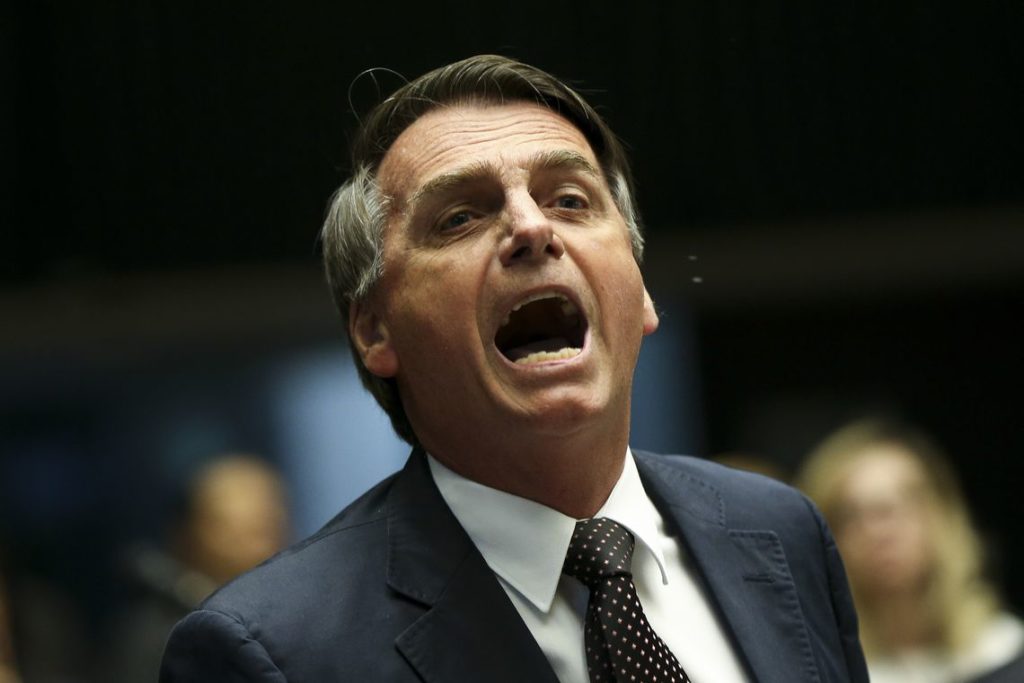by DARIO FARCY

After more than a decade, the progressive governments in South America are in retreat. Since 2014 they have lost their economic momentum (in part due to the decrease of commodity prices), jeopardizing the possibility of further improving the living conditions of their population and expanding people’s rights. Many South American countries once ruled by progressive forces are now in the hands of right-wing politicians: in Argentina since 2015, Brazil since 2016, and Ecuador since 2017. Before that, other progressive governments were overthrown by conservative forces through coups, as in Honduras in 2009 and in Paraguay in 2012.
The only survivors of the progressive cycle are Venezuela and Bolivia, although the first one is facing an economic war and increased US pressure since the self-proclamation of politician Juan Guaidó as the President of Venezuela. Since Venezuelan right-wing parties and opposition have not won sufficient support within society, they have required the backing of the US government. Trump was the first head of state to recognize Guaidó’s presidency, and the Trump administration is directly involved in deepening the country’s crisis.
Bolivia, on the other hand, is the only country in South America with a strong economy, although it is threatened by its proximity to and dependence on Brazil. Just recently, the conflict in Bolivia around the extradition of Italian political activist Cesare Battisti, has shown how Evo Morales and its government try to avoid any conflict with its neoliberal neighbor.
In Uruguay, although the center-left political alliance Frente Amplio (Broad Front) Party continues, the current government of Tabaré Vazquez is making important compromises to large corporations and right-wing parties. There is no doubt that with Tabaré Vazquez, Uruguay’s position concerning the influence of the US in the region has changed, from supporting the left to an increasing alignment with the Pacific Alliance, a Latin American trade bloc including Chile, Mexico, Colombia and Peru. As for countries such as Colombia, Peru or Chile, their elites and the traditional parties were able to avoid big changes in their neoliberal polices since the nineties.
Most of the new neoliberal governments in the region are in the hands of politicians raised in the post-Cold War era, yet with a decisive difference to the first wave of neoliberal governments in the 1980s and 1990s: they are young, successful business people. Most of them have no relations with traditional parties, but rather represent the idea of a capitalist post-modernity. They believe in free markets, globalization and in the republic institutions. Before taking control of the state, they were successful CEOs of important corporations or owners of well-known family businesses in their respective country. The best examples of this type of politicians are Sebastian Piñera in Chile, Horacio Cartes (President until 2018) in Paraguay, and Mauricio Macri in Argentina.
Still based on the neoliberal Washington Consensus of the 1990s, their policies aim at bringing development to the region through Foreign Direct Investment (FDI), usually in alliance with transnational corporations and investment funds. The so called “volver al mundo” (return to the world), proclaimed first by Argentine president Mauricio Macri, aims at relocating the region under the wing of neoliberal globalization commanded by the US and the EU, and away from the influence of China and Russia. Certainly, this implies the obliteration of institutions and agreements which were thought to foster regional integration without the control of the US such as UNASUR (Union of South American Nations), CELAC (Community of Latin American and Caribbean States), and ALBA (Bolivarian Alliance for the Peoples of Our America).
Of course, whenever there is a rule, there is an exception. After the institutional coup d’etat in Brazil, orchestrated in 2016 by deputy Eduardo Cunha against Dilma Rousseff, which put Michel Temer in power, the people’s confidence in the parties and in democracy in Brazil began to abruptly fall. This tendency was deepened when the supposedly democratic Cunha was sentenced to 24 years in jail for corruption and former president Temer admitted that the coup d’etat against Rousseff was planned as such from the beginning.
In this context, the 2018 election of Jair “the myth” (as his followers call him) Bolsonaro as the new Brazilian president is exceptional for many reasons. On the one hand, he shares some of the strategic elements with the new right-wing governments, such as the commitment to free trade and neoliberal policies, which is as strong as his faith in God, family and property. Bolsonaro, as well as Macri and Piñera, was presented to society as an outsider and does not have a big and traditional party behind him. Actually, in his 25 years as deputy of the Brazilian parliament, he changed his party affiliations eight times.
On the other hand, modernization is not part of his main goals. Once he got into the Planalto (Presidential residence in Brazil), he announced three measures which differ quite a lot from the ones taken by Mauricio Macri and Sebastián Piñera: 1) He eliminated the LGBTQI community from the ministerial bylaws regarding human rights. 2) He changed the name of the Fundación Nacional del Indio, which defines the territories that are part of the indigenous communities, and named it the Ministry of Agriculture. Interestingly, this ministry is now controlled by Tereza Cristina Correa, former chairperson of the parliamentary bloc which represents the landowner deputies and is an important landowner as well. 3) And he reduced the planned increase in the minimum wage. In this sense, his conservatives ideas related to the LGTBQI community, minorities, social movements, human rights and democracy are rather similar to the ones of Donald Trump.
Toward Freedom for more